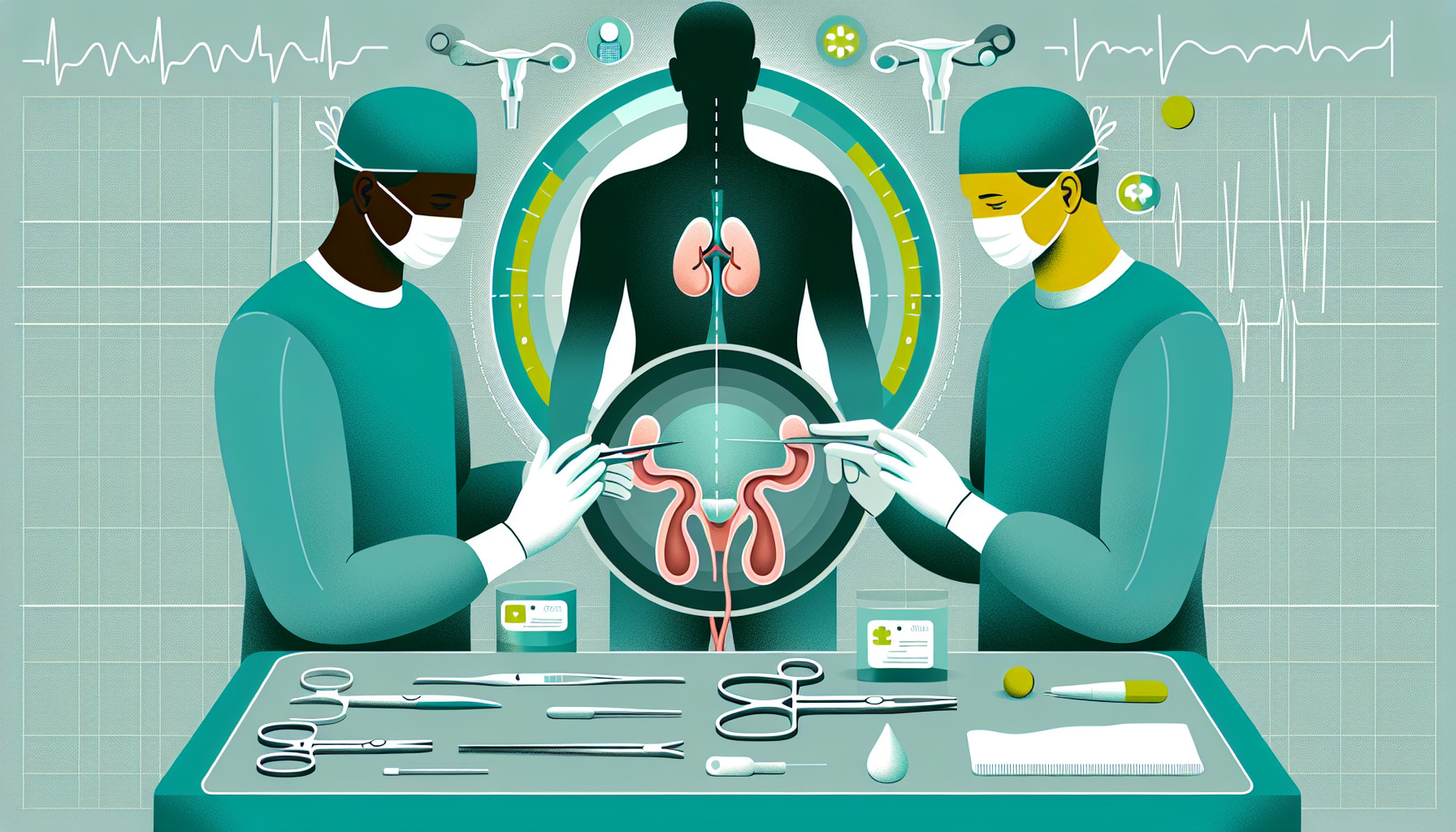Our Summary
This research paper is a detailed review and analysis of previous studies comparing two different treatments for invasive bladder cancer: trimodal therapy (TMT) and radical cystectomy (RC).
The study aimed to assess the effectiveness of these treatments in terms of survival rates (both overall and specifically related to cancer), recurrence rates, costs, and patient quality of life. The survival rates were measured by the overall survival (OS), cancer-specific survival (CSS), and metastasis-free survival (MFS).
The results showed that there was no significant difference in survival rates between the two treatments, even when different radiation therapy doses were used. However, the cost of TMT was found to be significantly higher than RC. Despite the higher cost, TMT was found to be more cost-effective when considering the quality of life it provides to patients, which was significantly better compared to RC.
In simpler terms, both treatments work equally well in terms of helping patients survive bladder cancer, but TMT, even though it’s more expensive, gives patients a better quality of life.
FAQs
- What were the main treatments compared in this study for invasive bladder cancer?
- Did the study find any significant differences in survival rates between trimodal therapy and radical cystectomy?
- Which treatment was found to be more cost-effective in terms of patient quality of life?
Doctor’s Tip
One helpful tip a doctor might give a patient considering a cystectomy is to carefully weigh the potential benefits and risks of both trimodal therapy and radical cystectomy. It’s important to consider not only survival rates but also factors such as cost and quality of life. Discussing these aspects with your healthcare team can help you make an informed decision that aligns with your personal preferences and priorities.
Suitable For
Patients who are typically recommended cystectomy are those with invasive bladder cancer that has not responded well to other treatments such as chemotherapy or radiation therapy. Invasive bladder cancer is characterized by cancer cells that have spread into the muscle layer of the bladder wall, making it more difficult to treat with less invasive methods.
Additionally, patients who have recurrent bladder cancer or have a high likelihood of cancer recurrence may also be recommended for cystectomy. These patients may have a higher risk of cancer spreading to other parts of the body, and cystectomy can help remove the cancerous bladder and reduce the risk of further spread.
Overall, cystectomy is often recommended for patients with invasive bladder cancer who have not had success with other treatments, have a high risk of cancer recurrence, or who may benefit from the removal of the bladder to improve their quality of life.
Timeline
Before cystectomy:
- Diagnosis of invasive bladder cancer
- Consultation with urologist and oncologist to discuss treatment options
- Decision-making process to choose between trimodal therapy or radical cystectomy
- Pre-operative preparation, including imaging tests, blood work, and possibly chemotherapy or radiation therapy
- Surgery to remove the bladder (cystectomy) and possibly other surrounding organs or tissues
- Post-operative recovery in the hospital, which may involve pain management, monitoring for complications, and learning how to manage a urinary diversion
After cystectomy:
- Adjustment to life without a bladder, including learning how to use a urinary diversion device or stoma
- Follow-up appointments with healthcare providers to monitor for recurrence or complications
- Potential need for additional treatments, such as chemotherapy or radiation therapy
- Rehabilitation to regain strength and function, including physical therapy and support for adjusting to changes in urinary function
- Long-term monitoring for recurrence and managing any side effects or complications of the surgery
- Adjustment to changes in quality of life, including potential impacts on sexual function, body image, and emotional well-being.
What to Ask Your Doctor
Some questions a patient should ask their doctor about cystectomy include:
- What are the potential risks and complications associated with cystectomy?
- How long is the recovery period after cystectomy?
- Will I need any additional treatments or therapies after the surgery?
- What are the long-term effects of undergoing a cystectomy?
- How will a cystectomy impact my quality of life?
- Are there any alternative treatment options to consider besides cystectomy?
- How frequently will I need follow-up appointments and monitoring after the surgery?
- What support services are available to help me cope with the emotional and physical challenges of undergoing a cystectomy?
- How experienced is the medical team that will be performing the cystectomy?
- What are the success rates of cystectomy in terms of cancer recurrence and overall survival?
Reference
Authors: Ditonno F, Veccia A, Montanaro F, Pettenuzzo G, Franco A, Manfredi C, Triggiani L, De Nunzio C, De Sio M, Cerruto M, Crivellaro S, Kutikov A, Autorino R, Antonelli A. Journal: BJU Int. 2024 Nov;134(5):684-695. doi: 10.1111/bju.16366. Epub 2024 Apr 15. PMID: 38622957
